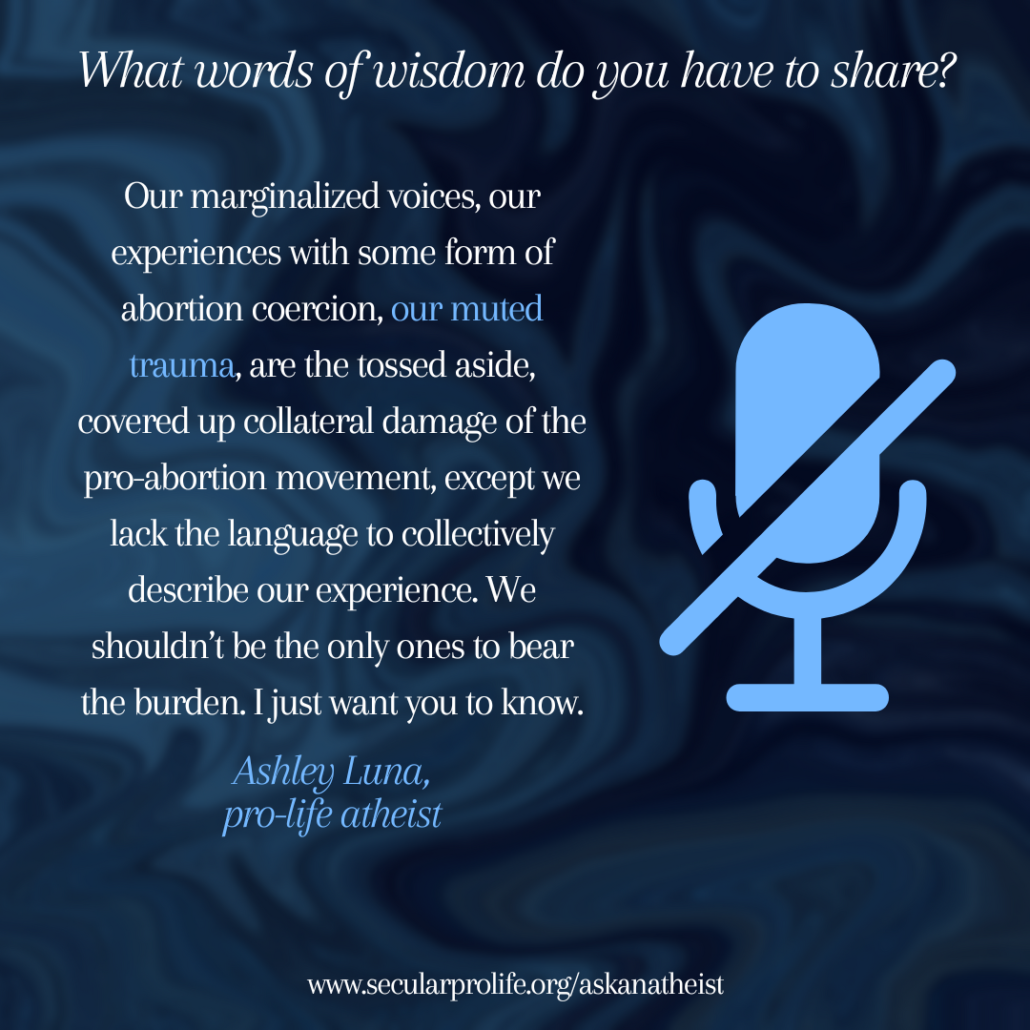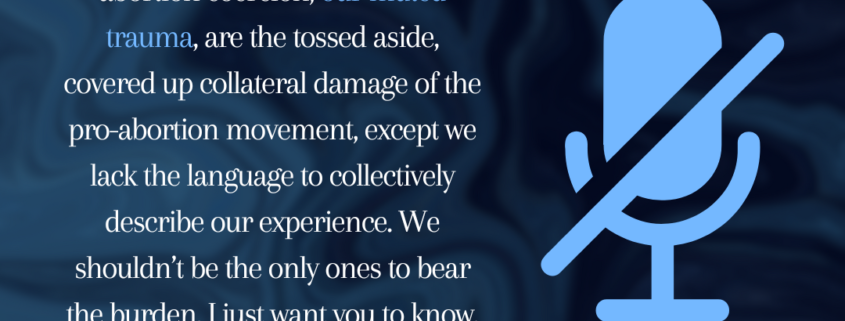Ask a Pro-Life Atheist: Ashley Luna
Once a month or so, the Secular Pro-Life blog features a short interview with a pro-life atheist. (See the full series of interviews here.) Although Secular Pro-Life is not exclusively for atheists, historically atheists have played a key role in the organization. As atheists become more prominent in the pro-life movement generally, we’re excited for the opportunity to share their stories. This month, we welcome atheist Ashley Luna.
How did you arrive at the anti-abortion position?
I have been pro-life my whole life. I’m simply against all forms of violence, especially against innocent children. I feel that abortion is institutionalized violence against women as well, and I reject elective abortion as a solution for women. Finally, the suffering that second and third trimester babies go through, as well as my difficult personal experiences surrounding pregnancy and motherhood, further drive my opposition against elective abortion.
How did you arrive at the atheist position?
I was raised in a Christian household, but just simply stopped believing in God altogether since early adulthood.
How do you contribute to the cause of saving lives in the womb?
As a busy and stressed out mom, I don’t have much resources to contribute for now. I do, however, attempt to spread awareness and advocate for moderate measures within social media and within the Forward and Common Sense Party (the political party I’m affiliated with as a member).
I have also performed rigorous online research regarding abortion statistics, quotes, facts, polls, some laws, the psychological/physical health risks, what abortions are like, and fetal pain and embryology, and I’ve created fact sheets and informal videos that I often share to spread awareness.

What words of wisdom do you have to share?
This is the most important thing I wish people would know about abortion:
Abortion coercion is a patriarchal institution. Abortion coercion, whether that’s from abusive pressures or threats from your partner, employer, or society in general, is institutionalized violence against women and unborn children.
Abortion coercion is when a pregnant woman experiences pressure to abort, either because of an unwanted pregnancy arisen from some form of sexual coercion, or because of outside pressures (like from a partner or the hostile economy) to abort a wanted child (whether she carries out the abortion or not).
I’ve realized that I’m not just speaking out against elective abortion; I’m speaking out against the lies, the gaslighting and the silencing of women’s voices, against the patriarchal forces of abortion coercion as well.
Our marginalized voices, our experiences with some form of abortion coercion, our muted trauma, are the tossed aside, covered up collateral damage of the pro-abortion movement, except we lack the language to collectively describe our experience. We shouldn’t be the only ones to bear the burden.
I just want you to know.



